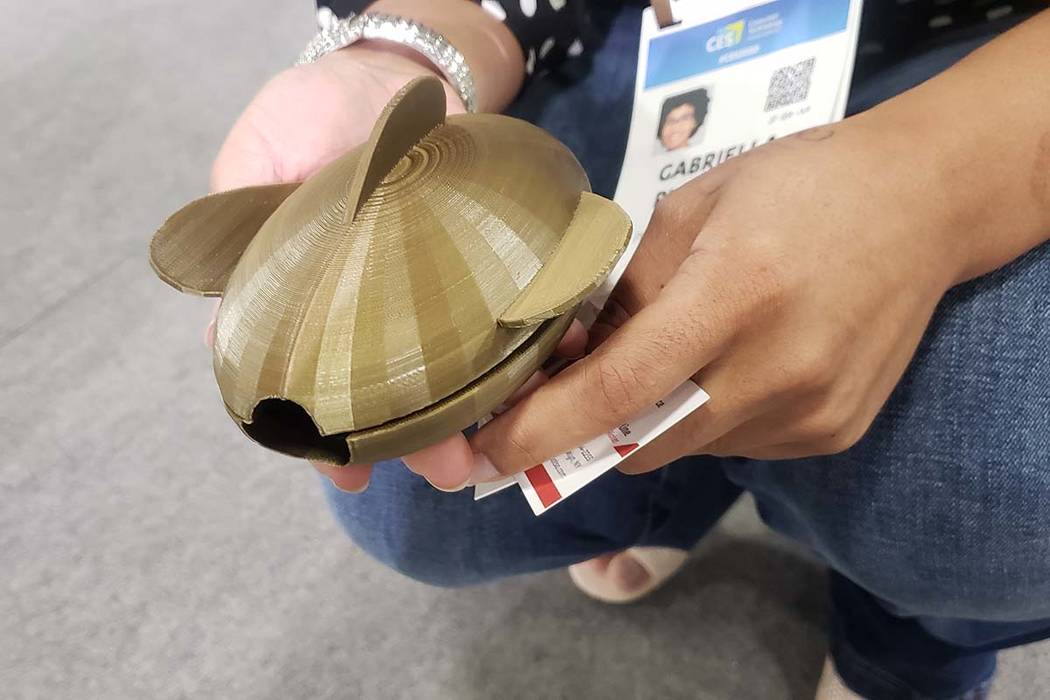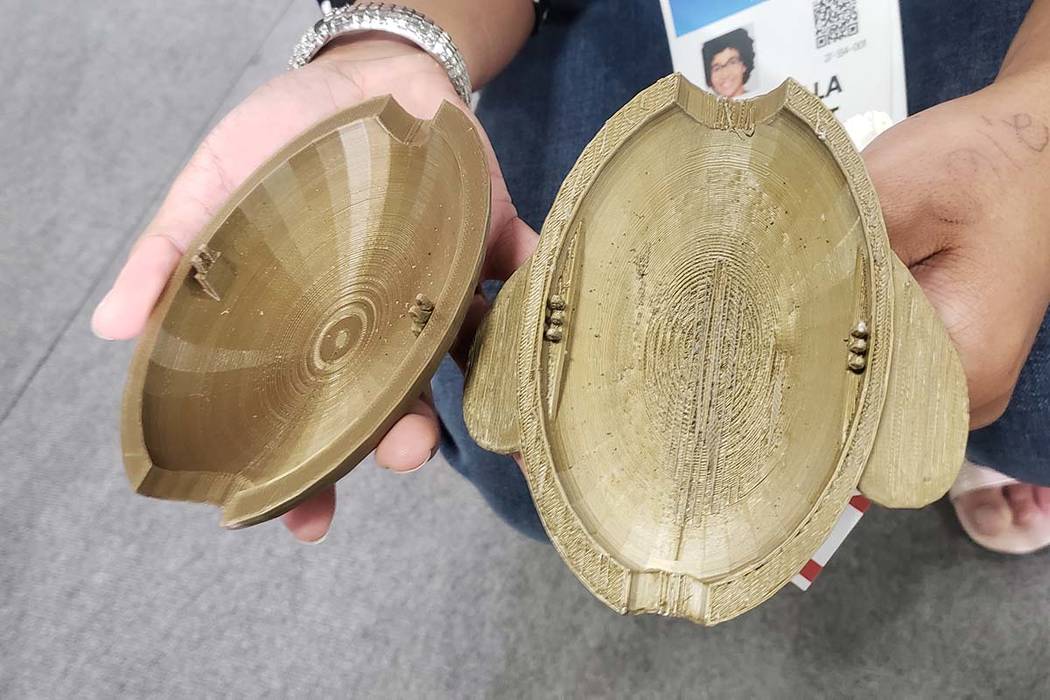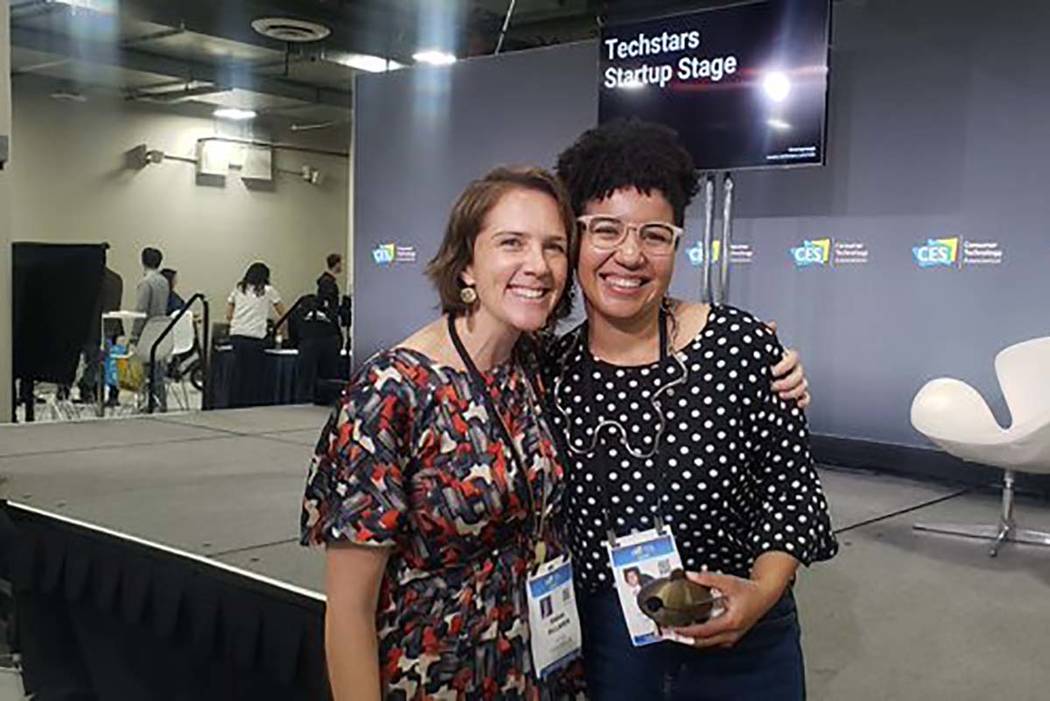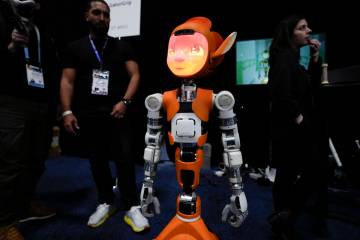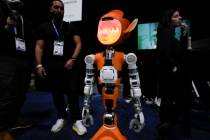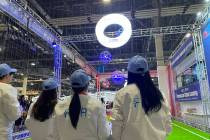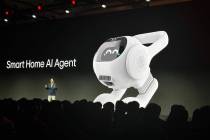Can a different kind of sea turtle rid oceans of microplastics?
The winner of the CES 2020 student pitch competition Wednesday wants to clean up polluted water with a tiny turtle that eats microplastics.
The palm-sized, turtle-shaped body of the device, known as Peter, contains a microbial mesh that reacts to the presence of microplastics to capture them, then uses enzymes to break them down. It’s 3D-printed, free of electronics and biodegradable, disintegrating on its own after about 10 days of being placed in water, according to creator Gabriella Pleasant of Pleasant Robotics.
Microplastics — or tiny pieces of plastic — are a form of pollution that has been found in food and water supplies around the world, even in areas as remote as the Arctic. Research has linked them to health issues in humans and disruptions to the normal development of animals and ecosystems.
Pleasant, a linguistics student at the University of California, Santa Cruz, said she was inspired to develop Peter because of the need for urgent, consumer-friendly solutions to environmental problems. She added that she’s fearful about what unchecked environmental damage could mean for future generations.
And last but not least: a tiny robotic turtle named Peter that eats microplastics in polluted water. pic.twitter.com/aM7v9UpcSK
— Aleksandra Appleton (@aleksappleton) January 8, 2020
“I have the most adorable nephew, and when we went to the beach, he couldn’t tell the difference between pieces of plastic and seashells,” she said. “I want him to know the difference.”
Pleasant was advised by Emma McLaren, a Santa Cruz-based startup coach with a background in marine management. McLaren said she has seen young people in particular gravitating toward social enterprise companies, which seek to make a positive impact while still succeeding in business.
“This generation is who the cleanup is going to fall on,” McLaren said.
Pleasant spent approximately two years developing Peter, which has been on the market for two months at a price point of around $30.
Two of Pleasant’s seven fellow pitch finalists also presented environmentally conscious products, including a carpooling app called RideSurf and BikeZero, a foldable electric scooter designed to encourage people to leave their cars behind on short commutes.
Contact Aleksandra Appleton at 702-383-0218 or aappleton@reviewjournal.com. Follow @aleksappleton on Twitter.



